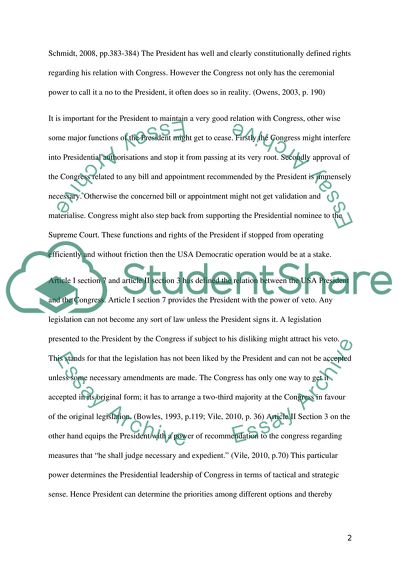Cite this document
(The Relationship between the President of United States of America and Coursework, n.d.)
The Relationship between the President of United States of America and Coursework. Retrieved from https://studentshare.org/politics/1745804-political-science-the-government-and-politics-of-the-usa
The Relationship between the President of United States of America and Coursework. Retrieved from https://studentshare.org/politics/1745804-political-science-the-government-and-politics-of-the-usa
(The Relationship Between the President of United States of America and Coursework)
The Relationship Between the President of United States of America and Coursework. https://studentshare.org/politics/1745804-political-science-the-government-and-politics-of-the-usa.
The Relationship Between the President of United States of America and Coursework. https://studentshare.org/politics/1745804-political-science-the-government-and-politics-of-the-usa.
“The Relationship Between the President of United States of America and Coursework”. https://studentshare.org/politics/1745804-political-science-the-government-and-politics-of-the-usa.


